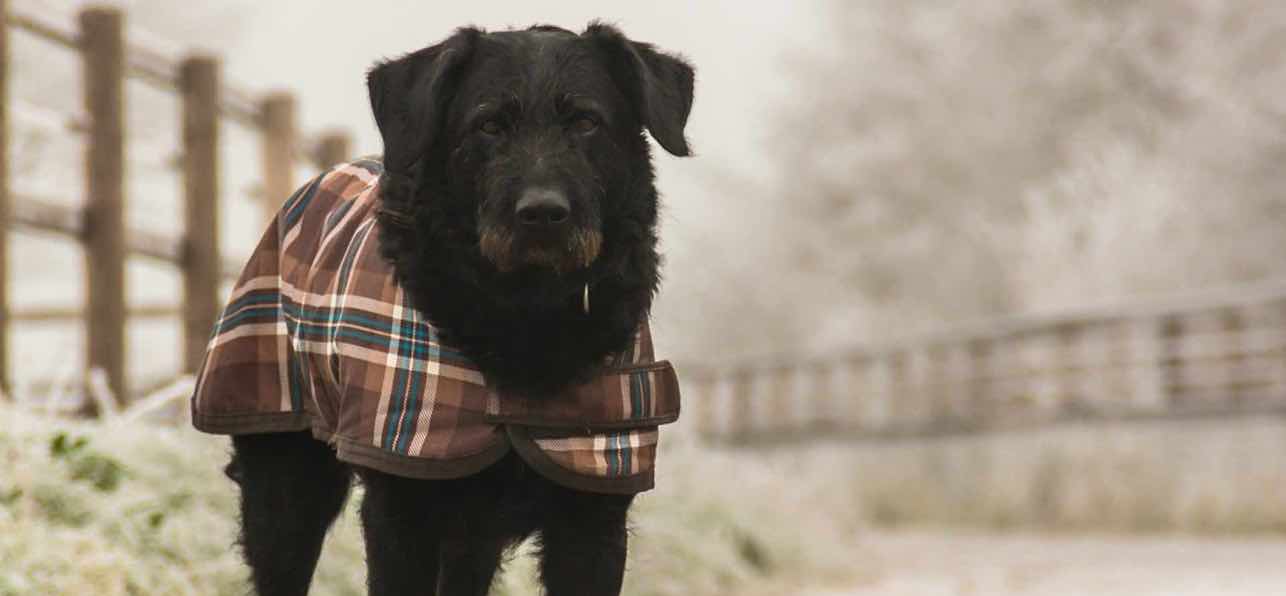As the new year begins, the temperatures are set to drop. Icy cold weather has arrived and this causes issues and struggles for most humans trying to stay healthy and warm as they brace the cold outdoor weather. Not only will this cause issues for their wellbeing, but it will also have an impact on our beloved four-legged friend's health and safety.
Majority of dog breeds suffer at some point with the cold weather and everything has to be done to protect their wellbeing and safety during the colder climate.
Listed below are eight helpful tips to help keep your dog well during winter.
Take your pet to the vets for a check-up
Pet owners should be taking their dog to the vets every six months for a wellness check-up. As the same with humans, dogs require regular check-ups to ensure their healthy and fit and for the vet to examine the dog's body condition to ensure they are well enough physically to brace the colder weather. A thorough examination by your vet will also help identify any possible health conditions that your dog may be suffering with. Taking your dog to the vets also allows you to ask for their professional advice on ensuring your pet stays and healthy and happy during the cold winter months.
Reduce your dogs walking times
Weather in the UK can be very unpredictable and the temperatures can significantly drop throughout the day and further during the evening. Walking your dog during freezing conditions should be avoided where possible and the duration of their walk and the time of day should be altered according to the temperature outside. If possible, walk your dog when the temperature has warmed up during the morning and walk them earlier in the evening before the temperatures plummet during the night.
The duration of their walks should also be altered according to the temperatures. If the weather is extremely cold, then a shorter walk will suffice; as long as they’ve done their business outside!
Invest in a suitable dog coat
You can help keep your dog warm by providing a suitable, warm and waterproof coat to help keep them insulated. Certain dog breeds, such as the Toy Dog Breed group suffer more with the colder weather than a dog breed like the Scottish Terrier.
You should always ensure your dog’s feet are dried off when they arrive home. You can also use dog boots to help protect your dog’s paws from the icy conditions.
Watch for signs for Hypothermia
When your pet is outside watch for signs of your dog shaking, shivering, anxious or whining. These are all signs of potential Hypothermia. If you suspect that your dog has this, then you must take them inside immediately to warm them up and then take them to the vets to be checked over.
Take care of your pet's paws
After taking your dog outside you must ensure you wipe their paws down after and examine for any cracks, injuries, salt or grit stuck to their paw pads. Salt and grit can cause pain and soreness to your dog's paws should they not be wiped down correctly.
After wiping and drying your dog's paw pads, you can also gently apply a suitable ointment or dog-friendly lotion to soothe and help prevent their paws from becoming dry and cracked.
Prevent your dog from becoming poisoned
During this time of year, it is extremely common that most households will use some form of chemicals such as antifreeze or other de-icers to help eliminate icy conditions. If a dog comes into contact with a chemical such as this and licks their paws, this can then cause them to become very unwell and potentially lead to death.
You must never use these chemicals around your pets and always clean up any area where the chemical has been used.
Ensure your home is pet proof
Dogs spend a lot of their time indoors during the colder months and therefore it is important that your home is doggie proof to ensure your pet is safe and free from harm.
Feed your dog a healthy diet
Feeding your dog a healthy diet is paramount regardless of the weather. You must never overfeed your dog during the winter months with the intention of the extra fat keeping them warm. Unnecessary extra fat may potentially lead to other health-related conditions.
If your dog is receiving less exercise because of the cold weather, then you must ensure their diet is adjusted accordingly.
Before changing your dog's diet, you must always seek professional advice from your veterinary practice.




